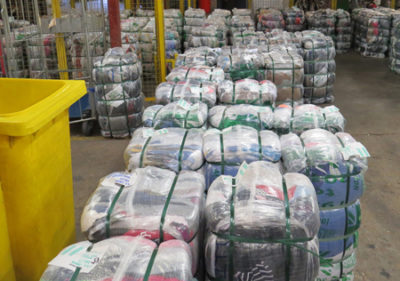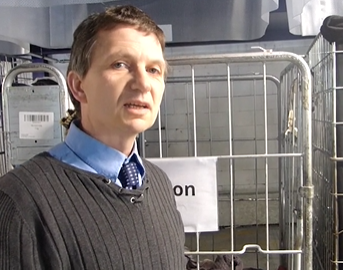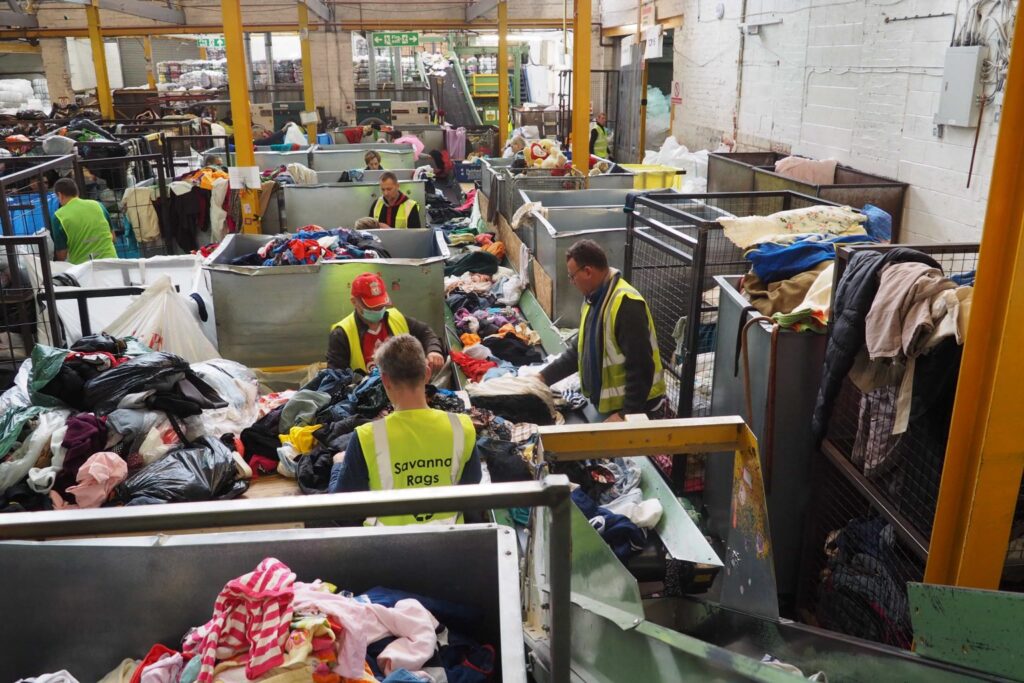The newspaper published its article on 27 June 2021 under the heading “How the clothes you donate to charity can end up on dumped in Ghana”.
Now, Alan Wheeler, director of the TRA has said that it is “important to understand that the used clothing industry is a global industry with clothing imported from all over the world and traded in international markets such as the one in Ghana.”

And, the TRA director has also emphasised that TRA and its members are calling for proper regulation of the sector to ensure that only good quality clothing is exported and not wasted.
He points out that the article states that “Clothes from the UK are usually well sorted” and that “in many ways Kantamanto Market… is an example of sustainability done right, employing some 30,000 people and giving clothing new life.”
‘Dead white man’
Mr Wheeler continued: “The fact that Ghanaians use the term ‘dead white man’s clothing’ is actually a comment about how good the quality of clothing is and how wasteful western society is. The thought being, the only reason westerners would want to pass on these items of such quality is because the original owner was dead.
“However, the article has incorrect information and inconsistencies. For example, it mentions that imports of used clothing into Rwanda have been banned. This is not true. The Government of Rwanda considered introducing measures to phase out the importation of used clothing in 2016, but instead opted simply to increase import tariffs.”

As reported in the article, Ghanaian Importers can pay in the region of £2,500 per tonne, said Mr Wheeler.
“However, this is only for good quality used clothing robustly sorted, specifically for these markets. This price per kg includes the cost of collection, processing, packaging, loading and unloading, shipment, clearance etc as well the cost of paying the charity or other collection partner the hundreds of pounds per tonne for the clothing collected. The net profit generated for businesses in the UK that operate on tight economic margins (which is not addressed in the article) is just a small fraction of the sales price paid in recipient countries and the income paid to charities etc is generous in relation to this. The TRA estimates that up to £70 million is paid to charities each year through the sale of used clothing by charities to the used textile sectors.”
Questions
In a statement to letsrecyle.com com, Mr Wheeler noted: “There are fundamental questions to be asked about why a wholesaler in Ghana would pay £2,500 per tonne for used clothing, only to throw away the quantities that are reported and why that wholesaler would continue to order used clothing from a western exporter if they were being supplied such poor quality. The percentage of clothing that is alleged to be going to landfill is based on research undertaken by the OR Foundation as part of a university thesis. This research, the methodology used and its conclusions have not been subjected the level of peer review you would normally expect; especially given the gravitas being attached to it.
“The TRA and its members are calling for proper regulation of the sector to ensure that only good quality clothing is exported”
“Unfortunately, there is an increasing amount of commentary written about this issue in the media and on the internet which has been produced by individuals who don’t have sufficient knowledge about the used clothing industry and are not able to cover the important details. If they did, it would give a significantly different slant on such articles.
“However, echoing what has been said in the article, The TRA and its members are calling for proper regulation of the sector to ensure that only good quality clothing is exported and not waste. The regulations are there, but the competent authorities in Europe do not enforce these effectively and we support positive proposals and actions which have been put forward in the Kantamanto market including the establishment of projects within the market to promote repair and recycling of clothing and infrastructure improvements within the market to reduce unnecessary wastage.”
Fashion industry
Mr Wheeler added: “Ultimately though, this is an issue about the sustainability of the fashion industry. The used clothing industry is by far the most sustainable part of the clothing supply chain and is making the biggest contribution to addressing the very real climate change and other environmental impacts caused by the fashion industry. It is not the used clothing sector that over-produces items that the public do not actually need. I believe most individuals working in the used clothing sector buy a lot less new clothing than most members of the public who are too easily allured by the marketing tactics of the retailers.”









Subscribe for free